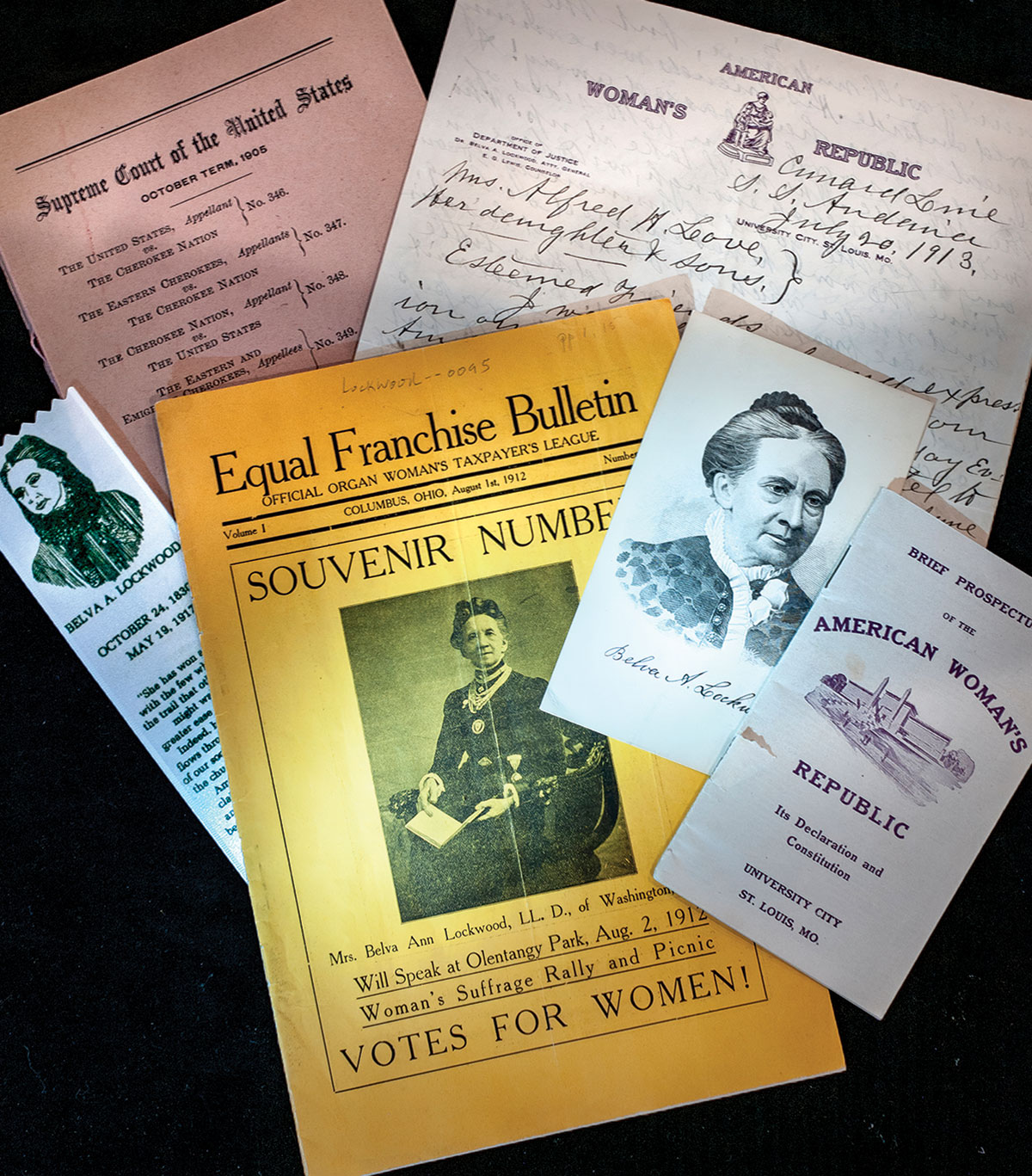looking back

ONE OF THE JEWELS of the Swarthmore College Peace Collection’s historic manuscript collections is the papers of Belva Lockwood. She may be best-known as the first American woman to run for president*, but that’s only one of the many milestones in her long and storied career.
She returned to school after the death of her first husband, and upon graduation, became a teacher and principal at several schools for women. Later, she moved to Washington, D.C., to study and practice law. There she married the Rev. Ezekiel Lockwood, who supported her ambitions.
Her second case before the high court was United States v. Cherokee Nation (1906). In an 1835 treaty, the Cherokee Nation ceded land in Georgia to the U.S. government for $1 million, but they were never paid in full. Lockwood won the Cherokee Nation $5 million with her argument before the Supreme Court, equivalent to about $165 million today.
— NIA KING